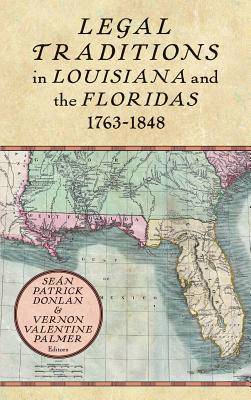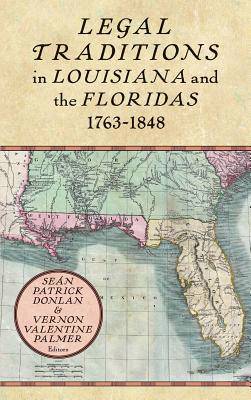
- Retrait gratuit dans votre magasin Club
- 7.000.000 titres dans notre catalogue
- Payer en toute sécurité
- Toujours un magasin près de chez vous
- Retrait gratuit dans votre magasin Club
- 7.000.0000 titres dans notre catalogue
- Payer en toute sécurité
- Toujours un magasin près de chez vous
Legal Traditions in Louisiana and the Floridas 1763-1848
Seán Patrick Donlan, Vernon Valentine PalmerDescription
This collection focuses on the period from 1763 through the mid-nineteenth century. In Louisiana and the Floridas, the territorial ambitions of Britain, France, and Spain, as well as the new American Republic, led to a rapidly shifting series of political and cultural changes. The result in the region was the creation of complex hybrids of social mores, customs, and legal ideas and institutions. Of particular significance were the land claims that inevitably followed transfers of sovereignty and legal systems, the social and legal entrenchment of established elites and the institution of slavery, as well as a legacy of extra-legal violence and folk justice. The fluid borders of Louisiana and the Floridas, both East and West, exposed the flexible social identities and political loyalties of those who were settled there. Indeed, later accounts of the period and place have often misunderstood mixed motives, and contemporary rhetoric, of its subjects and citizens. Through a mix of different historiographical methods, a broad understanding of legal and social history, and the lens of plural comparative contexts, this collection tells us much about continuity and change in a critical transition period for the region, as well as for the modern Western nation-state and its increasingly common laws. xxxv, 297 pp. 10 illustrations. Talbot Publishing (an imprint of The Lawbook Exchange, Ltd.)
Spécifications
Parties prenantes
- Auteur(s) :
- Editeur:
Contenu
- Nombre de pages :
- 334
- Langue:
- Anglais
Caractéristiques
- EAN:
- 9781616195847
- Date de parution :
- 14-03-19
- Format:
- Livre relié
- Format numérique:
- Genaaid
- Dimensions :
- 152 mm x 229 mm
- Poids :
- 657 g

Les avis
Nous publions uniquement les avis qui respectent les conditions requises. Consultez nos conditions pour les avis.






